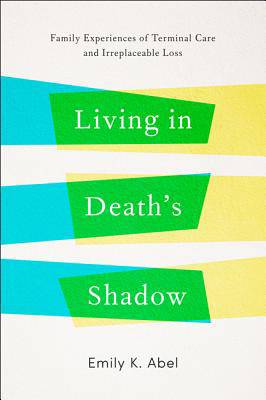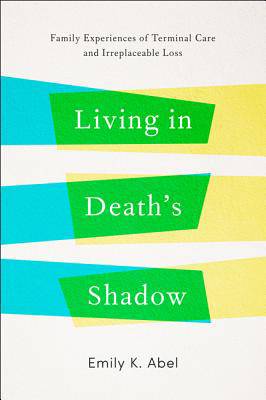
- Afhalen na 1 uur in een winkel met voorraad
- Gratis thuislevering in België vanaf € 30
- Ruim aanbod met 7 miljoen producten
- Afhalen na 1 uur in een winkel met voorraad
- Gratis thuislevering in België vanaf € 30
- Ruim aanbod met 7 miljoen producten
Living in Death's Shadow
Family Experiences of Terminal Care and Irreplaceable Loss
Emily K AbelOmschrijving
Challenging assumptions about caregiving for those dying of chronic illness.
What is it like to live with--and love--someone whose death, while delayed, is nevertheless foretold? In Living in Death's Shadow, Emily K. Abel, an expert on the history of death and dying, examines memoirs written between 1965 and 2014 by family members of people who died from chronic disease. In earlier eras, death generally occurred quickly from acute illnesses, but as chronic disease became the major cause of mortality, many people continued to live with terminal diagnoses for months and even years. Illuminating the excruciatingly painful experience of coping with a family member's extended fatal illness, Abel analyzes the political, personal, cultural, and medical dimensions of these struggles.
The book focuses on three significant developments that transformed the experiences of those dying and their intimates: the passage of Medicare and Medicaid, the growing use of high-tech treatments at the end of life, and the rise of a movement to humanize the care of dying people. It questions the exalted value placed on acceptance of mortality as well as the notion that it is always better to die at home than in an institution. Ultimately, Living in Death's Shadow emphasizes the need to shift attention from the drama of death to the entire course of a serious chronic disease.
The chapters follow a common narrative of life-threatening disease: learning the diagnosis; deciding whether to enroll in a clinical trial; acknowledging or struggling against the limits of medicine; receiving care at home and in a hospital or nursing home; and obtaining palliative and hospice care. Living in Death's Shadow is essential reading for everyone seeking to understand what it means to live with someone suffering from a chronic, fatal condition, including cancer, AIDS, Alzheimer's, and heart disease.
Specificaties
Betrokkenen
- Auteur(s):
- Uitgeverij:
Inhoud
- Aantal bladzijden:
- 184
- Taal:
- Engels
Eigenschappen
- Productcode (EAN):
- 9781421421841
- Verschijningsdatum:
- 28/02/2017
- Uitvoering:
- Hardcover
- Formaat:
- Genaaid
- Afmetingen:
- 155 mm x 231 mm
- Gewicht:
- 385 g

Alleen bij Standaard Boekhandel
Beoordelingen
We publiceren alleen reviews die voldoen aan de voorwaarden voor reviews. Bekijk onze voorwaarden voor reviews.











